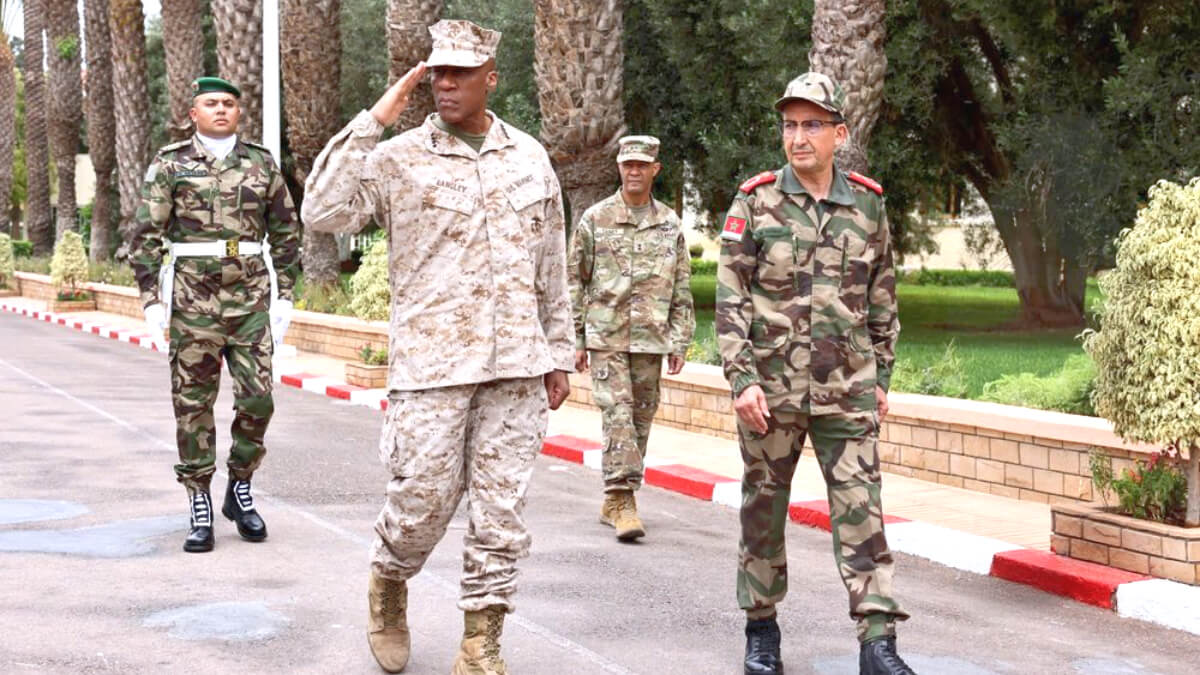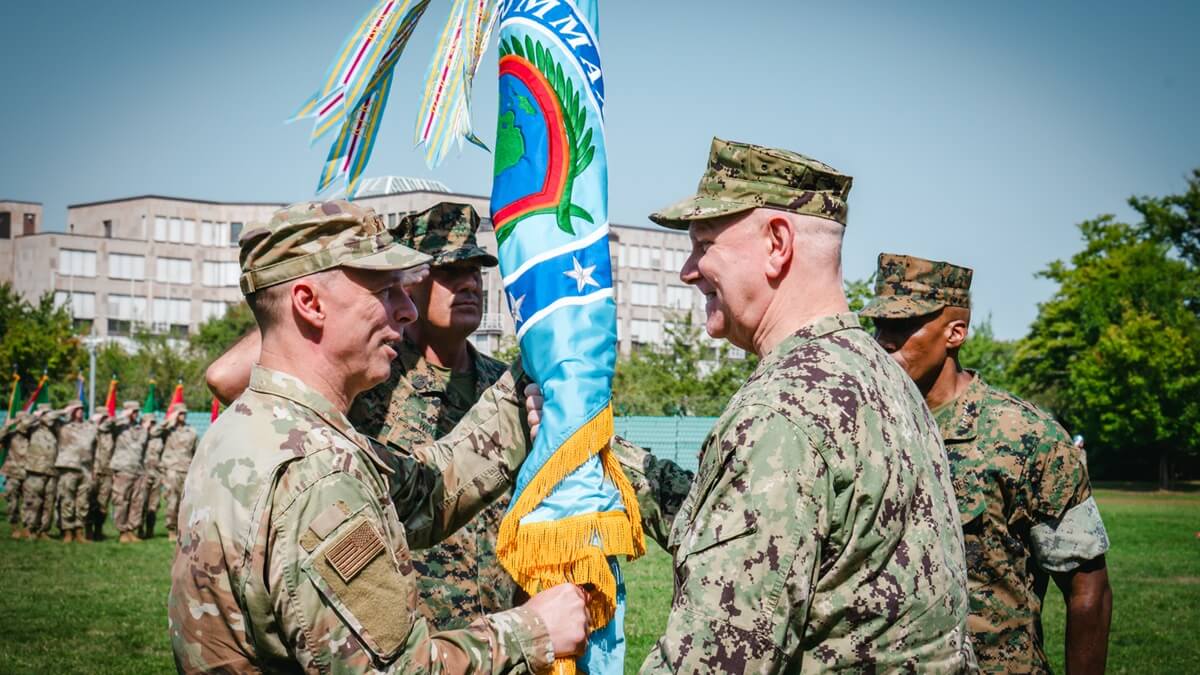Morocco, strong candidate to host Africom headquarters on the African continent
General Mohamed Berrid represented Morocco at the recent Africom change of command ceremony, reaffirming the country's candidacy to host the joint command headquarters in Africa

Morocco's participation in the Africom change of command ceremony on 14 and 15 August in Stuttgart (Germany) served to reaffirm its candidacy to host Africom headquarters on the African continent, thanks to the role it plays in the collective security of the region.
This was a highly symbolic event, at which US General Michael Langley passed the torch to General Dagvin R. M. Anderson of the United States Air Force, in the presence of senior military and civilian officials from the US, Africa and Europe.
Accompanied by a large delegation, Mohammed Berrid, Chief of the Moroccan Army, Inspector General of the Royal Armed Forces and Commander of the Southern Zone, represented Morocco in Stuttgart as delegate of King Mohammed VI, Supreme Commander of the Armed Forces.

Based in Stuttgart, Africom is one of seven joint geographical commands of the United States Army.
It is responsible for all military operations and activities designed to protect and promote US national interests on the African continent.
Competitive advantage
Almost two decades after former US President George W. Bush announced his intention to establish an Africom headquarters in Africa, that vision has now become an ambition within reach.
Morocco has a major competitive advantage in becoming that headquarters, thanks to its consistency, rapid modernisation and strategic openness. As one of the architects of this military adventure, the country shares the view that this is not just about hosting a military base, but a step towards the goal of building shared security based on sovereignty and responsibility.

In addition, two decisive factors play in its favour in becoming the headquarters of Africom: its geostrategic position at the crossroads between Europe, Africa and the Middle East; and its high-quality military infrastructure.
The Pentagon's criteria, based on logistical superiority, political stability and reliable military alliances, seem to place Morocco at the top of the list of candidates. In fact, advanced studies are already underway to establish Africom's future headquarters at the Kenitra military base, and other alternative sites in Moroccan territory, such as Dakhla or Tindouf, are also being considered.
Regional stabiliser
The US military authorities are clear about their selection criteria, which include logistics, stability and the reliability of partnerships. In this regard, Morocco has stood out from other possible options, such as the Spanish base in Rota (Cadiz), which appears to have been ruled out by the United States.
With its participation in the Africom handover ceremony, Morocco is gaining more points for its relocation on the international stage, being recognised as a regional stabiliser, an economic lever with major investments in infrastructure and a dynamic diplomatic corps in the face of the ambitions of Moscow and Beijing.
The Pentagon's official decision, which should be announced in the coming months, will mean a lasting redrawing of the map of US military presence in Africa.
Taking advantage of his presence at this international event, General Berrid held a series of bilateral meetings, reaffirming Morocco's commitment to broad and structured military cooperation with the United States.
These meetings focused on regional security, the fight against terrorism, the management of migration flows and the modernisation of African defence capabilities.
Morocco has a clear strategy to position itself as an indispensable partner for the major powers, in a context marked by the growing Russian and Chinese presence on the African continent.

The African Lion military exercises, co-organised annually by Rabat and Washington, reflect the strategic convergence between the two countries in this regard. This year, for example, they brought together more than 10,000 military personnel from 30 nations, demonstrating exceptional coordination and greater interoperability between US and African forces.
African Lion is not limited to tactical training, but represents an important diplomatic lever for Morocco, through which the North African country plays the role of regional facilitator in favour of collective security.
Continental security
Created in 2007 by former President George W. Bush, the US command for Africa is still based in the German city of Stuttgart, although the arrival of the Trump administration seems to favour a relocation of Africom's headquarters to the African continent, in order to highlight a more visible and legitimate American presence in Africa.
As the United States seeks to counter the influence of its Chinese and Russian rivals, Morocco appears to be a credible, reliable and effective ally for Washington, highlighting its increasingly important role on the global strategic stage.








